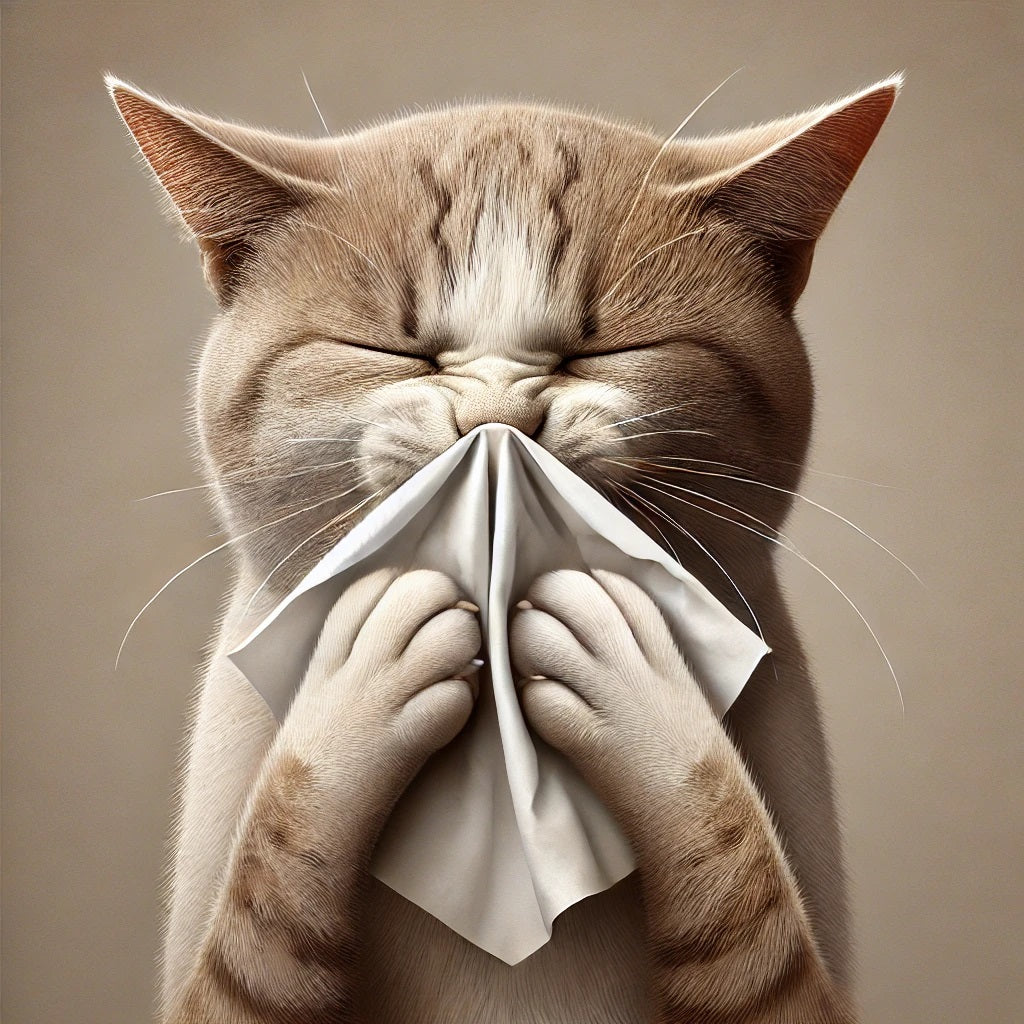
Can Cats Have Allergies?
Share

Just like humans, cats can suffer from allergies. These allergic reactions occur when a cat's immune system overreacts to a substance it perceives as harmful, even if that substance is typically harmless to most cats. Allergies in cats can manifest in various ways, affecting their skin, digestive system, or respiratory tract.
Pixel suffers from seasonal allergies, and has to take a kitty-sized dose of Claritin for several months during the spring and fall to ease her symptoms.

Common Allergens for Cats
Cats can be allergic to a wide range of things, including environmental factors like pollen, mold, and dust mites. Food allergies are also common, with certain proteins like chicken, beef, and fish being typical culprits. Cats can even develop allergies to flea bites, leading to intense itching and discomfort.
Gizmo is allergic to chicken-flavored food, which causes an excess buildup of wax inside his ears. This then causes his ears to itch. We keep him on an all-seafood diet to avoid this, even for his treats. Despite his food allergy, he doesn't appear to be allergic to our backyard chickens.

Egg Allergies in Cats
One specific type of food allergy that some cats may develop is an allergy to eggs. Eggs are often used in commercial cat foods or as a supplement in homemade diets due to their high protein content and many nutritional benefits. However, for a cat with an egg allergy, even a small amount of egg can trigger an adverse reaction.
Warning Signs in Cats of Food Allergies
If your cat has a food allergy, you may notice several warning signs after they've consumed allergen-containing products. Common symptoms include:
- Itchy Skin: Your cat may start scratching, licking, or biting at their skin, particularly around the face, ears, and paws.
- Gastrointestinal Issues: Vomiting, diarrhea, or other digestive disturbances can occur as the cat’s body reacts to the egg proteins.
- Respiratory Symptoms: While less common, some cats may develop coughing, sneezing, or difficulty breathing due to an allergic reaction.
- Swelling: You might observe swelling in the face, lips, or eyelids, which can indicate a more severe allergic response.
Managing and Preventing Allergies in Cats
If you suspect your cat has a food allergy or any other type of allergy, it's essential to consult with a veterinarian. They can help diagnose the allergy through elimination diets, allergy testing, or other methods. Once an allergy is identified, the most effective management strategy is to avoid the allergen entirely. For food allergies, this means carefully reading ingredient labels and avoiding feeding your cat any foods that contain that allergen. Additionally, some cats with food allergies may benefit from hypoallergenic diets, which are formulated with novel proteins or hydrolyzed proteins that are less likely to trigger an allergic reaction. These diets can help manage the symptoms and improve your cat’s overall quality of life.
Conclusion
Yes, cats can have allergies, including allergies to foods. Recognizing the signs of an allergic reaction and taking steps to avoid the allergen is key to keeping your cat healthy and comfortable. If you’re ever in doubt about your cat’s symptoms or dietary needs, your veterinarian is your best resource for guidance and support.
